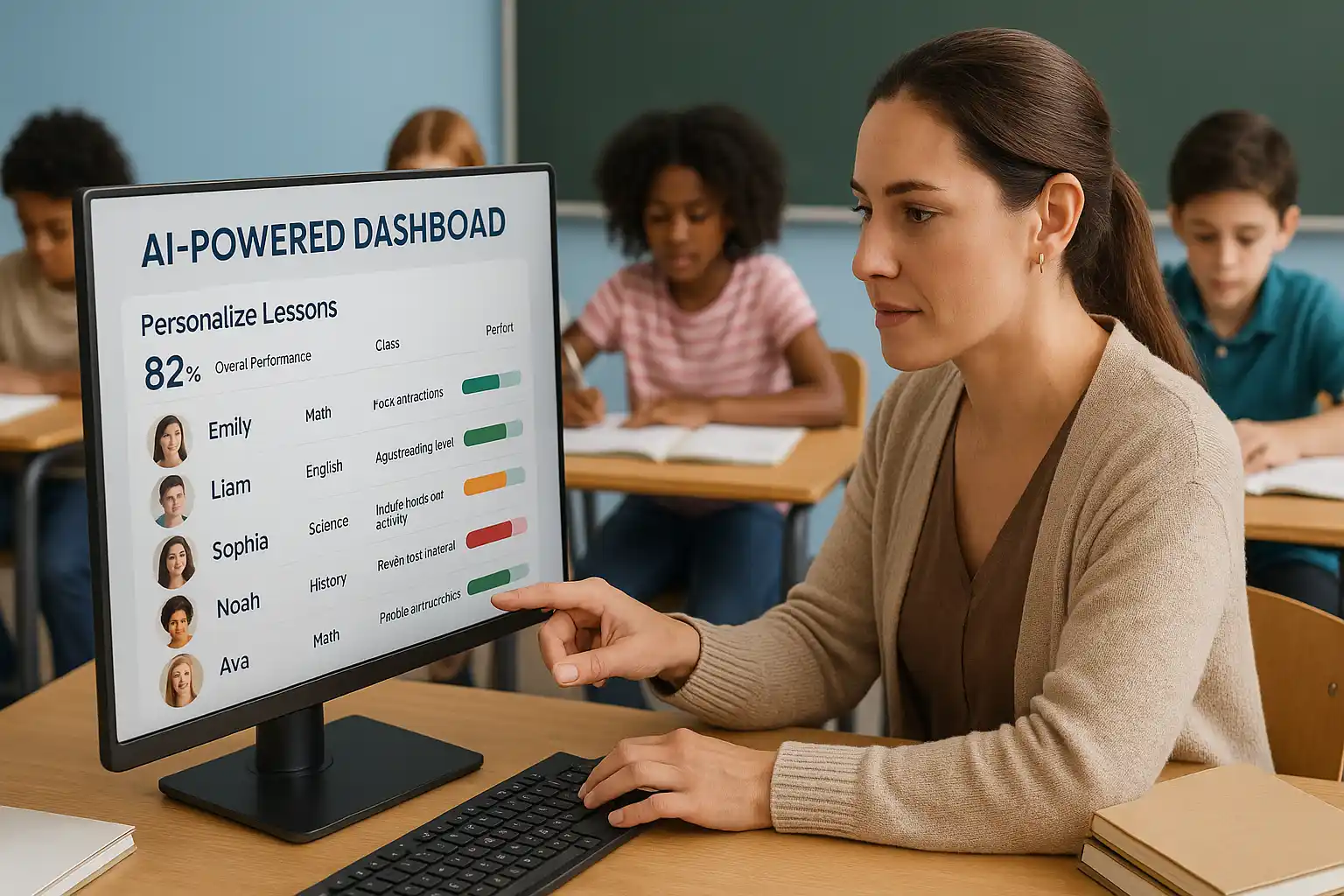In a world that keeps changing faster and faster, learning can no longer stop when we leave school. Whether you’re a teacher, a parent, or someone simply curious about the future, one thing is clear: education needs to last a lifetime. And guess what? Artificial Intelligence (AI) is playing a huge role in making this possible.
Let’s take a friendly walk through how AI is helping people learn new things throughout their lives. No technical talk—just real examples, plain language, and practical ideas you can relate to.
How AI in Education Is Supporting Lifelong Learning
Artificial Intelligence in education is changing the way people learn at every age. From young kids to older adults, AI is helping make learning more personal, flexible, and even fun. At the same time, it makes sure learning never really stops.
Imagine this: you’re a teacher who wants to update your skills, or maybe a retired worker who wants to explore a new hobby. AI tools can offer courses, guide your progress, and even give you feedback—just like a personal tutor who’s always available.
Let’s explore how this works.
What Is Lifelong Learning—and Why Does It Matter?
Lifelong learning is just what it sounds like: learning that happens throughout your life. It’s not just about school or college. It includes learning a new language, taking a cooking course, understanding how to use a smartphone better, or even learning how to manage your money.
Why is it important today?
- Technology keeps evolving.
- Jobs are changing, and new ones are appearing.
- People live longer and want to stay active and mentally sharp.
- Learning makes life more interesting and rewarding.
But here’s the thing: not everyone learns in the same way or at the same speed. That’s where AI comes in—to help make learning fit each person’s needs.
How Does AI Make Learning More Personal?
Traditional learning often treats everyone the same. But AI changes that. It watches how you learn and adjusts the lessons to match your pace and style. Here’s how:
1. Personalized Lessons
AI can analyze your answers and offer exactly what you need next. For example:
- If you struggle with reading, it will give you easier texts and explain things step by step.
- If you’re good at math, it will skip the basics and move you forward.
2. Language Learning Made Easier
Apps like Duolingo (https://www.duolingo.com) use AI to help people learn new languages. It knows which words you find hard and repeats them in fun ways. Great for all ages!
3. Support for Teachers
AI doesn’t replace teachers—it helps them. Tools like ScribeSense (https://www.scribesense.com) grade papers and find patterns in student progress. This gives teachers more time to focus on teaching.
👉 Discover how AI in education supports personalized learning with ChatGPT and Gemini. Simple tips and real classroom examples.
Helping Adults Learn and Grow
It’s not just kids who benefit. Adults, especially those who didn’t finish school or want to switch careers, now have more chances to learn.
Online Courses with AI Guidance
Sites like Coursera (https://www.coursera.org) or Khan Academy (https://www.khanacademy.org) use AI to:
- Suggest courses based on your interests.
- Track your progress.
- Help you remember key points.
AI in the Workplace
AI helps workers keep learning while on the job. For example:
- A nurse can take a quick AI-powered training to learn about new procedures.
- A delivery driver can use an AI assistant to improve navigation and customer service skills.
This way, people stay updated and confident—even years after leaving school.
Learning Doesn’t Have an Age Limit
One of the best parts of AI in lifelong learning is that it welcomes everyone. Even seniors who may not be tech-savvy can benefit.
Friendly AI Tools for Seniors
Devices with voice assistants (like Amazon Alexa or Google Assistant) can:
- Teach how to use apps or manage medicine.
- Offer news, games, or even exercise videos.
- Encourage daily learning in simple ways.
It’s learning with no pressure, at your own speed.

AI Makes Learning More Fun
Learning shouldn’t feel like a chore. AI uses fun ways to teach, like:
- Gamification: Turning lessons into games.
- Rewards and Badges: Like stars or trophies when you complete tasks.
- Interactive Stories: Choose-your-path books that help with reading.
Even adults enjoy these methods because they make learning more exciting.
Is AI Learning Safe and Fair?
Many people worry about privacy or fairness—and that’s understandable.
Good news: Most trusted AI tools follow strict rules to protect users. Still, it’s important to:
- Use well-known and reviewed platforms.
- Avoid sharing private info unless necessary.
- Teach digital safety along with digital skills.
Learning about AI is also part of learning for life.
Key Points About How AI in Education Is Supporting Lifelong Learning
- AI helps people learn at their own pace, anytime and anywhere.
- Tools adapt to different needs, making learning easier for everyone.
- AI supports teachers by saving time and offering personalized insights.
- Adults benefit through job training, hobby learning, and daily life skills.
- Seniors use AI to stay engaged and continue learning comfortably.
- Fun methods like games and voice assistants make learning enjoyable.
- It’s important to use trusted platforms and understand digital safety.
Conclusion
Artificial Intelligence is turning lifelong learning into something real and reachable. It’s not just for tech experts or young students. It’s for teachers, parents, workers, retirees—everyone. AI meets people where they are and walks with them on their learning journey.
If you’re someone who thought learning wasn’t for you, or that it’s too late to start—think again. AI in education is here to help you grow, discover, and shine, no matter your age.
What about you? Have you used AI to learn something new? Share your story in the comments—we’d love to hear from you!

